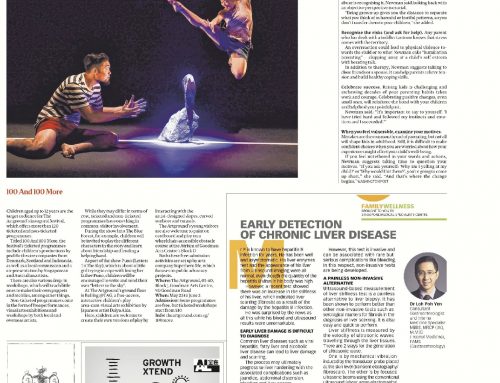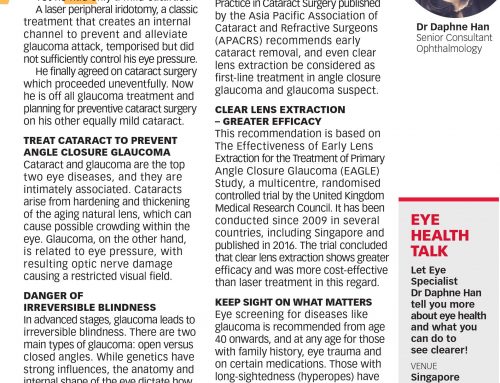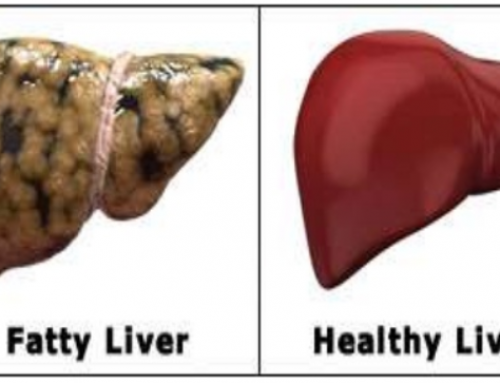Many men go through a period in their life where they will experience a loss in vitality, physical fatigue and a drop in libido. The cause may often be a simple case of work-related burnt out or sleep deprivation. Some will attribute it to their inevitable ingress into middle age slump. But if the symptoms persist, underlying testosterone deficiency syndrome (TDS) should be considered. 95% of circulating testosterone hormone in men is produced in the testes. It does more than fuel his sex drive. It is vital for the optimal development and maintenance of men’s sexual characteristics and function. When testosterone levels drop too low, it becomes a health condition. Usual complaints include fatigue, loss of libido, erectile dysfunction, loss of muscle mass, central obesity, irritability and decreased cognitive
function.
The condition is more common than once believed. A primary care clinic-based health screening conducted on 1000 Singaporean men had shown that 26% of them had some degree of TDS based on Ageing Male Symptoms scoring. More commonly known by its shorthand andropause or male menopause, TDS describes the drop in testosterone that many men experience as they get older. Testosterone levels tend to decline an average of 1 percent per year after men turn 30. Some health conditions can cause earlier or more dramatic decline. Men who are over the age of 50 with type 2 diabetes and/or erectile dysfunction have higher odds of developing testosterone deficiency. TDS is often underdiagnosed and undertreated. The Men’s Health Network states that only 5 percent of men who have testosterone deficiency receive treatment. Part of the problem lies in the lack of awareness and understanding of the condition. A UK survey looking at the reason for delayed diagnosis amongst men with TDS found the main reasons for this delay were:
– Wrongly believing that it was not a serious problem (49%)
– Wrongly believing that it was ‘part of life’ (46%) or a normal consequence of ageing (44%)
Unlike women, who experience a rapid drop in hormone levels at menopause, men experience a more gradual decrease in testosterone levels over time. Because the decline is gradual, most men don’t recognize that there is a problem. Ignoring it may be perilous to health. In epidemiologic studies, low blood testosterone concentrations have been associated with the subsequent development of central obesity, the metabolic syndrome, diabetes mellitus and early death.
Benefits of Testosterone Replacement Therapy (TRT)
To answer the question of whether testosterone should be administered to symptomatic older men with low levels of testosterone, the National Institute of Health (NIH) in America funded the multicenter Testosterone Trials (TTrials), an integrated set of seven placebo-controlled clinical trials. The TTrials confirmed that testosterone treatment of older men with low testosterone levels is effective in improving sexual function, mood, depressive symptoms, anaemia, and bone density, all to a modest degree. The trial, however, showed testosterone did not improve vitality or cognition and was associated with an increase in coronary artery plaque volume. This did not translate into increased risks of clinical cardiac events at the end of the trial.
Erectile Dysfunction
Phosphodiesterase-5(PDE- 5) inhibitors like Viagra are often the 1 st line therapy for men with erectile dysfunction(ED). In those individuals with a significantly low testosterone level and ED that is suboptimally responding to PDE-5 inhibitors, testosterone replacement allowed them to recover the ability to have a satisfactory erection. In the international, multicentre, prospective study IPASS with a sample of 1493 men, TRT showed a significant improvement in libido, erectile function and response to PDE-5 inhibitors therapy. It is worth noting that, because vascular abnormality is the most common cause of ED, it also can serve as an early marker of cardiovascular disease(CVD) and provides an opportunity for CVD risk reduction. The latest edition of the Princeton consensus for the management of erectile dysfunction and cardiovascular disease now recommends the measurement of testosterone in the evaluation of all men with ED.
Cardiovascular Morbidity and All Cause Mortality
The US Food and Drug Administration (FDA) decision in September 2015 to tighten cardiovascular safety warnings about off-label testosterone prescribing had caused significant alarm amongst medical practitioners and patients alike. The evidence for the warnings was based on four trials. Two of these studies used supra-physiological doses of testosterone. The other two had major design and interpretation flaws which the FDA later acknowledged after an official review. When the raw data was properly reinterpreted, testosterone replacement therapy was actually shown to have a protective effect. In the study by Tan et al. that included 19968 men with low testosterone who received TRT during a 5-year period, the risk of myocardial infarction was 7-fold lower and the risk of stroke nine times lower compared to samples from the general population. Two recently published large prospective studies with long follow-up, one in a veterans population and the other in men with diabetes, found that mortality was reduced by more than half in men with low testosterone who received TRT versus a control group of men who had not.
Metabolic Syndrome and Type 2 Diabetes Mellitus
Another area of interest is the association of TDS with metabolic syndrome and type 2 diabetes mellitus. Many of the components of metabolic syndrome such as obesity, hypertension, dyslipidaemia, impaired glucose regulation and insulin resistance are also present in men with low testosterone. Data from HIM study revealed that as many as 50% of diabetic men were testosterone deficient. Several randomized controlled trials have noted consistent metabolic improvements with testosterone replacement, through a decrease in total and visceral body fat, decreases in insulin resistance and improvement in glycemic control.
Areas of concern
Like all good things in life, testosterone therapy is not without risk. For example, testosterone therapy may:
– Contribute to sleep apnea
– Cause acne or other skin reactions
– Stimulate noncancerous growth of the prostate (benign prostatic hyperplasia) and growth of existing prostate cancer
– Limit sperm production or cause testicle shrinkage
– Increase the risk of a blood clot forming in a deep vein of the leg (deep vein thrombosis), and lungs (pulmonary embolism)
Treatment for testosterone deficiency can improve quality of life dramatically. It can also lead to the diagnosis and treatment of related, underlying health conditions, like cardiovascular disease, diabetes mellitus and obesity. After a thorough assessment, your doctor will be in the best position to advise you if you will benefit from treatment.
— End —
Dr Lee Fang Jann
Urologist
Singapore Medical Specialists Centre
Vice president – Asian Association of Andrology
Exco Member – Society for Men’s Health, Singapore






